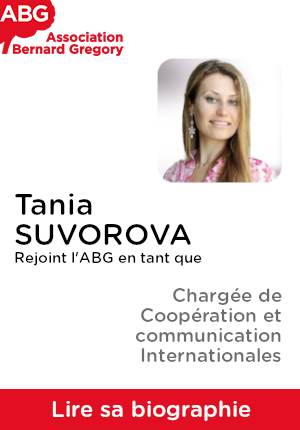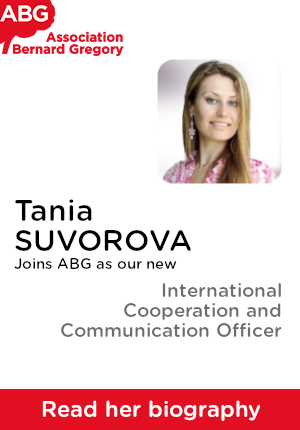Innovative MCF amplifier approaches for telecommunications
| ABG-134019 | Sujet de Thèse | |
| 24/10/2025 | Financement de l'Union européenne |
- Physique
- Sciences de l’ingénieur
- Télécommunications
Description du sujet
MATCH (Multicore Fiber - Applications and Technologies - Match) is a Marie Sklodowska-Curie doctoral network funded by the European Commission under the Horizon Europe. MATCH is committed to training the next generation of European researchers/engineers in MCF technologies and applications.
https://match.iscte-iul.pt/
MATCH consortium is looking for outstanding and motivated Doctoral Candidates (DCs) with the skills, knowledge, and enthusiasm to develop innovative and breakthrough research in the field of multicore fibre (MCF) technology.
DC 4 – Innovative MCF amplifier approaches for telecommunications
Supervisors: P. Roy (Université de Limoges, France)
Ultra-high-speed fiber optic telecommunications are now entering the era of multi-core fibers to meet the world’s ever-increasing demand for data transfer. Signal regeneration is a key function of future networks, and each core, and eventually each mode, must benefit from controlled gain, so as not to create a gain difference between cores, and to guarantee the balance of the system as a whole. While rare earths, and erbium in particular, are well known to designers of fiber-optic amplifiers for telecommunications, we propose a dual approach. First, gain equalization between the different cores will be addressed by looking for ways to homogenize the intensity distribution of pumping power in the cladding, while maintaining an active fiber geometry (doped with erbium) identical to that of the line fiber. Secondly, we will evaluate the potential of a cladding-pumped Raman amplifier, once again seeking to optimize efficiency and gain equalization in the various cores by designing special optical fibers.
Planned secondment(s):
- Heraeus, Germany: K. Schuster M21-26 (6 months duration) “Cylinder drilling, geometrical adaptation towards smaller preforms”
- Iscte, Portugal: T. Alves M41-M42 (2 months duration) “Experimental demonstration of long-reach amplified MCF systems”
For more information and how to apply, visit:
https://match.iscte-iul.pt/phd-candidates-profiles/
Prise de fonction :
Nature du financement
Précisions sur le financement
Présentation établissement et labo d'accueil
MATCH (Multicore Fiber - Applications and Technologies - Match) is a Marie Sklodowska-Curie doctoral network funded by the European Commission under the Horizon Europe. MATCH is committed to training the next generation of European researchers/engineers in MCF technologies and applications. MATCH will offer its DCs a comprehensive education encompassing the latest developments in MCF, component and subsystem design and implementation, and the practical engineering aspects of MCF-based systems and networks. With the collective expertise of all partners, MATCH stands as a unique consortium, poised to train a cohort of DCs with comprehensive and sound knowledge on MCF technology in Europe. Training of DCs will exploit multidisciplinary consortium expertise spanning design, modelling and simulation of photonic systems, sensor systems, signal processing and device manufacturing, development of machine learning algorithms, and design of optical communication networks or power consumption and energy saving. The synergies of MATCH consortium act together to enable the thirteen DCs to become the next worldwide senior fellow leaders on photonics networks and systems, with a clear understanding of intersectoral scientific fields ranging from optical fibre communication design and implementation, components fabrication, artificial intelligence, or techno-economic analysis, which represent qualified skills highly pursued by key technological players worldwide.
The consortium of MATCH doctoral programme represents a multidisciplinary and intersectoral team with vast experience in training and innovative research deployment. MATCH comprises some of the most renowned European universities, spanning across 6 different European countries. All these universities have high educational and research standards and suitable infrastructures to host and train DCs. The private sector is represented by 2 high-tech research institutes and 4 European cutting-edge companies with a strong position in the optical fibre communications and optical components segment.
The MATCH methodology includes cross-disciplinary methods and practical experience for all DCs by granting access to top laboratory and test-bed facilities in both host and secondment institutions within academia and industry.
The most talented candidates will be selected for advanced multidisciplinary and intersectoral research training, starting on January 2026.
Key Features of the PhD Positions:
- Multidisciplinary training: Training of DCs will exploit multidisciplinary consortium expertise spanning design, modelling and simulation of photonic systems, sensor systems, signal processing and device manufacturing, development of machine learning algorithms, and design of optical communication networks or power consumption and energy saving.
- Secondment activities: Each DC will experience at least two secondments, with at least one in a country different from that of the host institution. MATCH comprises a total of 32 secondment actions, of which 25 are hosted by academic partners and 7 by industrial partners.
- Personalized Career Development Plans: Each DC of MATCH network has a personalized training program established. The program describes the research training goals of the DCs, transferable skills to attain, collaboration with partners and engagement in MATCH outreach activities, publication in journals and international conferences, and opportunities for the DC's future career development. The career development plan will be adjusted to DC’s personal circumstances that may arise and updated along the Ph.D. programme.
Profil du candidat
Research Field: Electrical Engineering / Physics / Optics
Education Level: Master’s degree or equivalent
Skills/Qualifications: Applicants must be proficient in English language.
Specific scientific and technical prerequisites:
- good understanding of light propagation into optical fibers (modelling and practice, handling, stripping, splicing),
- skills on rare-earth amplifiers (modelling and practice),
- skills on Raman amplifiers (modelling and practice),
- skills on high power lasers, both semiconductors and fibre lasers.
Eligibility criteria
All applicants must, at the date of the recruitment, comply with the following two eligibility rules:
- To be eligible for a recruitment within a DN project, the candidate must be a doctoral candidate, i.e. not already in possession of a doctoral degree at the date of the recruitment.
- The MSCA are based on the principle of physical mobility. Each DC is required to undertake transnational mobility to be eligible for recruitment in a doctoral network project. As such, the DC must not have resided or carried out their main activity (work, studies, etc.) in the country of the recruiting beneficiary for more than 12 months in the 36 months immediately before their recruitment date.
All the applicants are asked to submit an Eligibility form attesting the compliance with these rules.
Vous avez déjà un compte ?
Nouvel utilisateur ?
Vous souhaitez recevoir nos infolettres ?
Découvrez nos adhérents
 Laboratoire National de Métrologie et d'Essais - LNE
Laboratoire National de Métrologie et d'Essais - LNE  MabDesign
MabDesign  Nokia Bell Labs France
Nokia Bell Labs France  Aérocentre, Pôle d'excellence régional
Aérocentre, Pôle d'excellence régional  SUEZ
SUEZ  CASDEN
CASDEN  Généthon
Généthon  MabDesign
MabDesign  ASNR - Autorité de sûreté nucléaire et de radioprotection - Siège
ASNR - Autorité de sûreté nucléaire et de radioprotection - Siège  PhDOOC
PhDOOC  ONERA - The French Aerospace Lab
ONERA - The French Aerospace Lab  TotalEnergies
TotalEnergies  Groupe AFNOR - Association française de normalisation
Groupe AFNOR - Association française de normalisation  ADEME
ADEME  Ifremer
Ifremer  ANRT
ANRT  Institut Sup'biotech de Paris
Institut Sup'biotech de Paris  Tecknowmetrix
Tecknowmetrix  CESI
CESI


